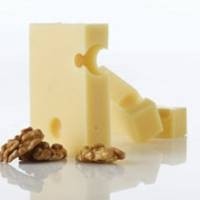DEFRA admits it’s under pressure to slice cheese compositional standards

Regulation 42 (2) of the UK Food Labelling Regulations 1996 states that a range of cheeses must adhere to fat and moisture content limits, but DEFRA does not currently envisage retaining such a provision when the FIR replaces national legislation from December 2013 to December 2016.
The UK regulation dictates that specified product names – for instance, ‘Cheddar’, ‘Blue Stilton’, ‘Derby’, ‘Leicester’ – should not be used to label or advertise cheese, unless water levels (as a percentage of weight) do not exceed certain limits, while minimum milk fat levels are also stipulated.
Clare Cheney, PTF director general, confirmed to DairyReporter.com that DEFRA had sent a recent letter to both her trade body and peer Dairy UK – following their representations urging the government to retain fat and moisture limits for named cheeses to protect quality and characteristics.
This stated that DEFRA’s current position is that cheese compositional requirements would not be added to implementing regulations for the FIR.
But Cheney said: "We have a very strong case, and this is in the interests of the consumer as well as the industry to maintain these standards."
Strong economic need?
While DEFRA said it understood the points raised by industry, we understand that it has told industry that it was under pressure in a deregulatory climate to remove this type of provision (the compositional standards) unless a strong economic need could be demonstrated.
But Cheney said she had little sympathy for this position: “I have no sympathy whatsoever, because this is an example when the industry is actually asking for regulations to be retained, and they would only do that, in extremis, if they felt that it would be detrimental not to have the regulation.
She added: “It’s not normal practice for the industry to actually ask for regulations. Now that the FIR has been agreed, this is supposed to replace all national legislation across Europe, and therefore there would have to be a very strong reason to retain national legislation.
“Now we believe that there is a very strong region to retain it, particularly for cheeses such as cheddar, made in other parts of the world as well as the UK. We believe very strongly that the UK rules should remain, otherwise it might undermine the quality.”
Sub-standard cheddar imports
Cheney said that large quantities of Cheddar were imported, which could lead to problems: “My organisation represents importers as well, but I don’t want to see standards fall. We would not condone imports of lower standard product, and to be fair, it could happen with UK producers as well.
“But in the case of Cheddar – much of which is mild – produced worldwide, some of which is of a low standard anyway, this is an area that could suffer.”
Confronted with industry concerns, a DEFRA spokeswoman told DairyReporter.com this morning: “We’re aware of Dairy UK’s concerns about speciality cheeses and we’ll be listening to everyone’s views on the issue in a public consultation this summer.
She added: “Maintaining standards for consumers is our priority. We’ve got to consider whether existing legislation remains the best approach, and if it allows innovation by the industry.”
Speaking at the All Party Parliamentary Cheese Group reception in London on Wednesday, Dairy UK director general, Jim Begg, said that the UK cheese industry needed to be able to respond to changing consumer preferences.
“What this industry needs from government is a benign legal environment that allows us to respond to the consumer.”
Begg added that, in light of the FIR and the European Regulation on Nutrition and Health Claims, “we want to avoid restrictive labelling laws hindering product development, whilst maintaining traditional varieties".



















